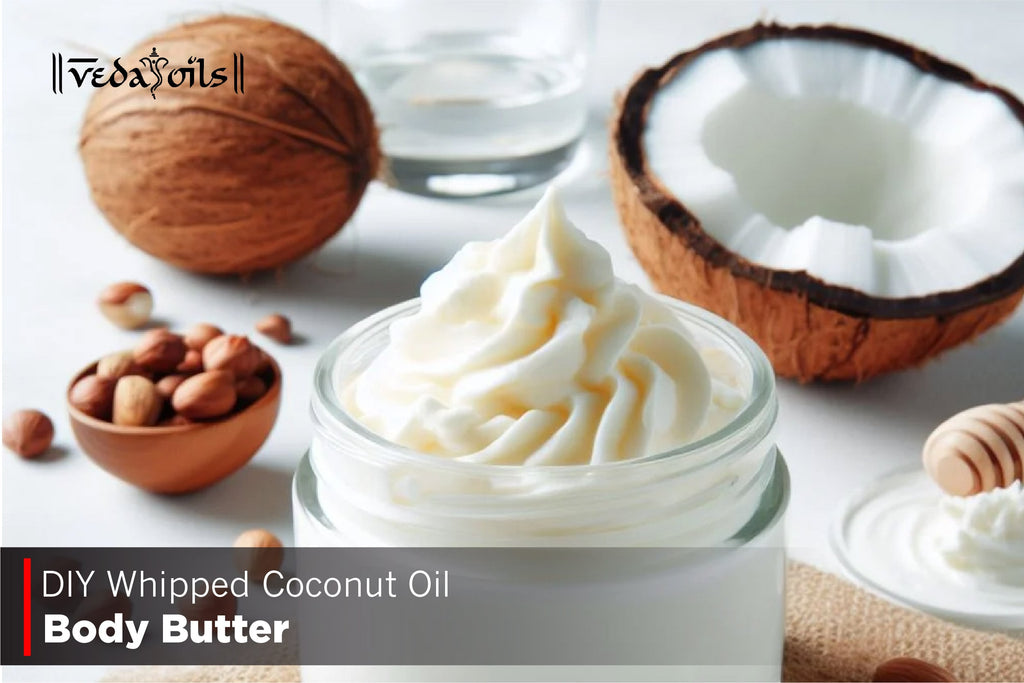Oils have been used by people for centuries. We use oil for various purposes. Be it cooking or applying it on our hair as hair oil, it has been an important and crucial addition to our life. Coconut oil is one of the most commonly used oils in Indian households. I guess we all can vouch that our first and foremost hair oil was coconut oil.

Jojoba oil on the other hand has become an important and crucial ingredient in the cosmetic industry. With increasing awareness in the skincare industry people nowadays have come to know about the real benefits and purposes of these oils and what wonders they can do. Let’s understand two most common and highly popular oils in depth to find out which is the best option for you and why.
What is Coconut Oil ?
Coconut oil is extracted from coconut meat which is called copra. Coconut grows on trees especially in coastal areas. The white thick fruity part of the coconut which is either called coconut meat or copra is used to make coconut oil. For centuries coconut oil has been used for cooking in the southern part of India. We girls can always rely on coconut oil for a good chumpy.
What Is Jojoba Oil?
Jojoba oil is extracted from the seeds of jojoba plant which is usually found in the deserts of Arizona, Northern Mexico and arid California. It is filled with antioxidants and fatty acids. The jojoba seed from which the oil is extracted contains a liquid wax. The presence of this liquid wax is what makes jojoba oil have liquid-like consistency. Jojoba oil is used as a key ingredient in many skincare products especially products designed for oily skin.
Difference Between Coconut Oil & Jojoba Oil
Coconut oil and jojoba oil are quite similar and have similar properties. They both have antimicrobial properties, both the oils are rich in antioxidants, both have anti-inflammatory properties and contain SPF. The major difference between coconut oil and jojoba oil is their consistency and the skin types they are suitable for.

Coconut oil has a slightly thicker texture than jojoba oil. It can not be used on oily skin as it may make the skin more oily by blocking the pores. Coconut oil has emollient properties.
It helps prevent water loss from the skin and keeps the skin hydrated which makes it a great option for people with dry skin. Coconut oil is known for its healing and soothing features and is non reactive, which makes it suitable for sensitive skin as well.
On the other hand, jojoba oil has liquid-like consistency and has a very light texture, which makes it a great option for oily skin. Jojoba oil is the main ingredient in products that are designed to cure skin conditions such eczema, psoriasis, rosacea etc.
It has antibacterial properties and removes bacteria from the skin. It cleanses the pores instead of clogging it. However it can cause an allergic reaction, so it is advisable to consult your dermatologist before adding it to your skincare routine.
Coconut Oil VS Jojoba Oil For Hair
Traditionally coconut oil has been known for its hair rejuvenating properties. People have been using it as a hair oil for centuries. However, jojoba oil has certain properties that can be quite beneficial for our hair as well.

Coconut Oil For Hair
Coconut oil is a great hair moisturizer. It keeps your hair hydrated and moisturized. It contains SPF, it also saves your hair from UV rays. It promotes hair growth. Even though it is not scientifically proven, many people believe that despite its properties, coconut oil can lead to dandruff.
Jojoba Oil For Hair
Jojoba Oil on the other hand has been proven to work wonders for your hair. It has more saturated ingredients which makes it a better option for moisturizing and treating your hair than coconut oil. It also promotes hair growth but at the same time reduces dandruff and hair loss. Jojoba oil can control skin oil production. It helps unclog hair follicles by removing extra oil or dust build up on the scalp and promotes healthy hair growth.
Coconut Oil VS Jojoba Oil For Skin
As discussed earlier, coconut oil is a great option for people with dry skin and jojoba oil is a great option for people with oily skin. Both these oils can be used on sensitive skin as per the requirement.

Coconut Oil For Skin
Coconut oil is a great hydrating agent and can provide relief from dry and irritated skin. It has healing properties and helps soothe any itchiness or pain caused due to irritated dry skin. It has antimicrobial and antibacterial properties which makes it a great option for sensitive skin.
It does not react with the skin and has very less chances of causing an allergic reaction on the skin. People with skin conditions such as acne or eczema can resort to coconut oil. Its antibacterial and antimicrobial properties remove bacteria from the skin, but it can lead to clogged pores which may agitate your acne.
Jojoba Oil For Skin
On the other hand, jojoba oil also helps with skin conditions like acnes and eczema. Jojoba oils are quite beneficial in treating acne. When our skin produces too much oil or sebum it can lead to acne. Jojoba oil helps control and balance skin sebum production and thus helps control acne. It also cleans skin pores and since it is light in texture it does not clog any skin pores.
Coconut Oil vs Jojoba Oil - Which Is Better?

In my opinion, both coconut oil and jojoba oil are filled with great qualities and have the potential to benefit our skin in several ways. The key here is to understand what your skin requires and what is suitable for your skin type. If you have oily skin then definitely jojoba oil is the best option for you. But if you have dry skin and you are looking for something that will keep your skin hydrated for a longer period of time then you should opt for coconut oil.
Conclusion
Both these oils have distinctive and similar properties and help our skin in one way or another. It is upon us to understand what our body requires and then decide which oil to use. It is equally important to make sure that you buy these products from a trustworthy source. Veda Oil is one of India’s leading manufacturers, suppliers and wholesalers of organic products. Their products are 100% authentic and natural. You can buy organic jojoba oil and coconut oil easily from VedaOils’ website.
Frequently Asked Questions
Here are some frequently asked questions about Coconut Oil Vs Jojoba Oil:
Q. Is Jojoba oil or Coconut Oil Better For You?
Ans. Like jojoba oil, grapeseed oil also has a very fine, non-greasy texture. It does not leave any residue on the skin, which makes it a better option than coconut oil for people with dry skin. Coconut oil can lead to clogged pores and on the other hand grapeseed oil actually opens up clogged pores. So, if you suffer from terminal oily skin, grapeseed oil or jojoba oil is a much better option for you than coconut oil.
Q. Which is Better Coconut Oil or Jojoba Oil?
Ans. As discussed above, both these oils have great benefits, but if we have to choose one, it would be jojoba oil. Jojoba oil can be used on all skin types whether dry, oily or sensitive, but coconut oil cannot be used on dry skin. Coconut oil has many great features but jojoba oil can easily compensate for them.












 Sign in
Sign in Register now
Register now My Reward Points
My Reward Points









